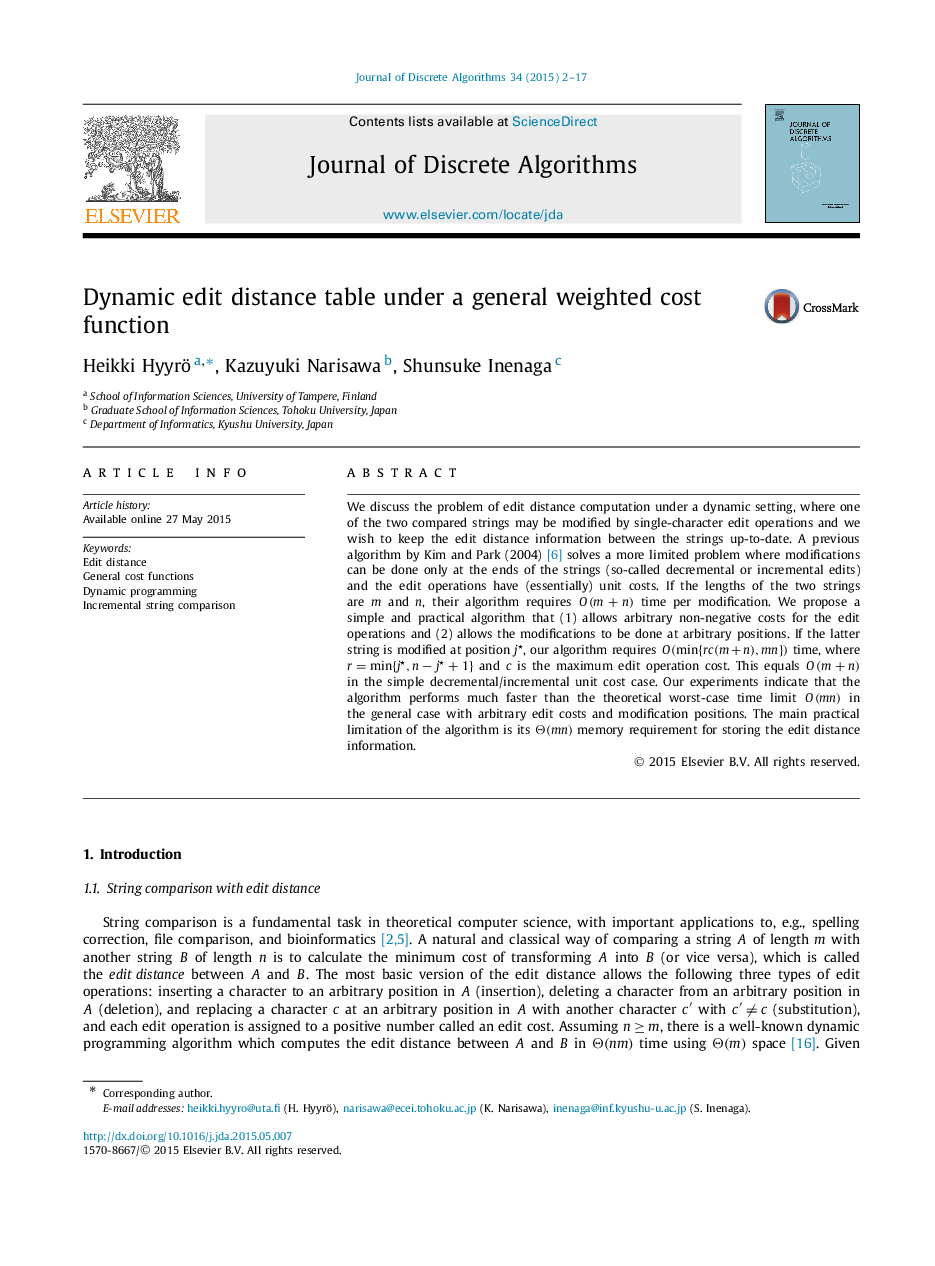| Article ID | Journal | Published Year | Pages | File Type |
|---|---|---|---|---|
| 431601 | Journal of Discrete Algorithms | 2015 | 16 Pages |
We discuss the problem of edit distance computation under a dynamic setting, where one of the two compared strings may be modified by single-character edit operations and we wish to keep the edit distance information between the strings up-to-date. A previous algorithm by Kim and Park (2004) [6] solves a more limited problem where modifications can be done only at the ends of the strings (so-called decremental or incremental edits) and the edit operations have (essentially) unit costs. If the lengths of the two strings are m and n , their algorithm requires O(m+n)O(m+n) time per modification. We propose a simple and practical algorithm that (1) allows arbitrary non-negative costs for the edit operations and (2) allows the modifications to be done at arbitrary positions. If the latter string is modified at position j⋆j⋆, our algorithm requires O(min{rc(m+n),mn})O(min{rc(m+n),mn}) time, where r=min{j⋆,n−j⋆+1}r=min{j⋆,n−j⋆+1} and c is the maximum edit operation cost. This equals O(m+n)O(m+n) in the simple decremental/incremental unit cost case. Our experiments indicate that the algorithm performs much faster than the theoretical worst-case time limit O(mn)O(mn) in the general case with arbitrary edit costs and modification positions. The main practical limitation of the algorithm is its Θ(mn)Θ(mn) memory requirement for storing the edit distance information.
